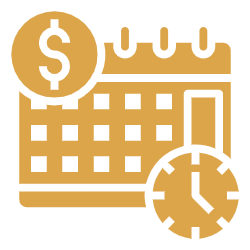Understanding the Amount of Canada Pension Plan (CPP) Benefits
The Canada Pension Plan (CPP) is a key part of the retirement income system in Canada, providing financial support to individuals who have contributed to the plan during their working years. However, one of the most common misconceptions about CPP is that everyone receives the same amount of pension benefits. In reality, the amount of CPP you receive depends on several factors, including how long and how much you contributed to the plan during your employment, your age at retirement, and your employment history.
Contributions and Earnings
The primary factor influencing the amount of CPP you receive is your contributions to the plan. CPP contributions are based on your earnings during your working years. The higher your income and the longer you worked, the more you contribute to CPP, which in turn increases your pension amount. However, there is an upper limit, or “maximum contributory earnings,” beyond which contributions are capped. This limit is adjusted annually. As of 2024, for example, the maximum contributory earnings threshold is set at $66,600.
It’s important to note that not everyone contributes the same amount to CPP. Individuals with higher earnings will contribute more, resulting in a larger CPP payout upon retirement, while those with lower incomes or fewer years of work will receive smaller benefits.

Maximum CPP Benefit
There is also a maximum amount that any individual can receive from CPP. In 2024, the maximum monthly amount for new beneficiaries at age 65 is $1,306.57. However, most Canadians receive less than this maximum amount because their contributions were either lower or their working years were fewer than the maximum contributory period of 39 years. To receive the maximum CPP benefit, you need to have made the maximum contribution every year for nearly four decades, which is not a common scenario for most people.
Early or Late Retirement
The age at which you start collecting your CPP benefits significantly impacts the amount you receive. If you begin receiving CPP at the standard retirement age of 65, you will receive your calculated benefit amount based on your contributions. However, if you choose to take CPP early, at any time after age 60, your benefits will be reduced by 0.6% for each month you receive it before your 65th birthday. This means that if you start collecting CPP at age 60, your monthly benefit will be reduced by 36% permanently.
On the other hand, if you delay taking your CPP past age 65, your benefits will increase by 0.7% for each month of delay, up to age 70. This can increase your monthly CPP payments by as much as 42% if you wait until age 70 to begin collecting your benefits.
Disability and Survivor Benefits
In addition to retirement benefits, CPP also provides disability benefits and survivor benefits. These additional benefits vary in amount depending on the contributor’s earnings, length of contributions, and the specific circumstances of the individual or their family members. For instance, a spouse or dependent children may be entitled to survivor benefits after the death of a CPP contributor, but these amounts will differ from the contributor’s retirement pension.
Other Factors Affecting Your CPP Benefit
Several other factors can influence the amount of CPP you receive. For example, if you took time off work to raise children under the age of seven, you may qualify for the “child-rearing provision,” which helps ensure that your pension is not reduced due to lower earnings during those years. Similarly, certain periods of low or no earnings, such as unemployment or disability, may be excluded from your CPP benefit calculation, which could boost the amount you receive.
Conclusion
In conclusion, not everyone receives the same amount of Canada Pension Plan benefits. The amount you receive depends on your contributions to the plan, your earnings over your working life, and the age at which you start collecting your pension. Additionally, disability, survivor benefits, and special provisions like the child-rearing provision can affect your overall CPP entitlement. Understanding these factors will help you better plan for your retirement and maximize your CPP benefits.
